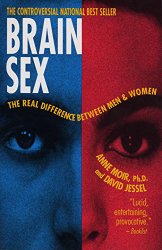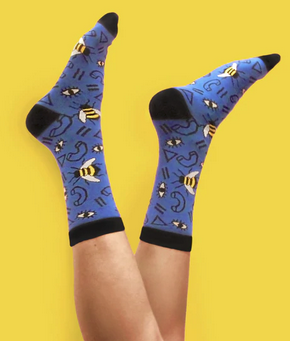My Gender
Thinking about genders, we used to have only two options: male and female. Now we have more. I have a lot of young acquaintances who are non-binary. So I started to rethink my gender identity.
I was a typical girl: at least, I thought I was. I hated playing with boring dolls. I preferred cars, or even better, construction sets and board games. In second grade, I wanted to be a ballerina but later fell in love with Sherlock Holmes. My dreams switched to becoming a detective or a spy. In fifth grade, I signed up for rifle-shooting training. That same year, my school forced me to compete in an orienteering event, and I won.
Orienteering became my favorite sport, and I did it for many years. I was really good with maps. I would go to a competition, leisurely walk my course and win. Other kids were running around like crazy, but I always knew where to go and was overall faster than them. With time, other kids learned to read maps better, but I myself never learned to run faster. So I stopped winning, but I enjoyed the sport anyway.
It goes without saying: I loved math. Solving math problems was the best entertainment ever.
Later, to my surprise, I discovered that most girls liked shopping and wasted a lot of time on make-up. Not many girls were even interested in math. I actually liked that. I started having crushes on boys since second grade and enjoyed being the only girl in math clubs, having all these nerds to myself.
I grew up in Soviet Russia. While growing up, I wasn’t bombarded with gender stereotypes. My first eye-opening experience was when I was 17 years old. My long-time boyfriend knew that I liked mathematics, and this was okay. But when I told him that I planned to go to college to study mathematics, he didn’t approve. I broke up with him on the spot.
My mom used to tell me that most men do not like brainy women. My reply was that there are more men who like brainy women than brainy women. I got a new boyfriend the day after my breakup.
My gender identity didn’t bother me much in Russia. What bothered me was the Russian tradition for both spouses to work, but the house chores and child-rearing duties fell only on women. I read somewhere that, on average, in Russia, women worked for 4 hours a day more than men. Life was unfair to women but not to their self-esteems.
As I said, I grew up thinking I was a typical girl until I came to the US. This happened 30 years ago, and I was 30 at the time. In the US, I got bombarded with gender stereotypes: they made me feel inadequate and doubt my femininity. Just for reference: by that time, I was in my third marriage breastfeeding my second child. Still, according to those stereotypes, I was not a real woman.

For some time, I wondered what was wrong with me. Then, I was elated to find a book called Brain Sex: The Real Difference Between Men and Women by Anne Moir and David Jessel. (This was many years ago.) Among other things, this book talks about the differences between men and women with respect to the brain. According to the book, men are better on average at abstract thinking and spatial visions, aka math and maps. Women, on the other hand, are better at connecting with people and have higher social intelligence. Boys are less interested in games related to storytelling, aka dolls, preferring more concrete activities. And so on.
The book also describes situations in which girls don’t fit the paradigm. The authors attribute this variation to the mother’s hormones during pregnancy. I found myself described perfectly in the section titled “girls who have been exposed to male hormones in the womb.” I am pretty sure that my mom didn’t take any hormone supplements while pregnant with me back in Soviet Russia. On the other hand, the description in the book was spot-on.
This book classifies me as “a male brain in a female body.”
I was glad to find myself after a period of self-doubt. I was glad that I wasn’t alone and even fit into a special category with a name.
Several years later, I met Sue Katz, a writer who also has a blog Sue Katz: Consenting Adult. She made me realize how ridiculous the whole story was: I was pressured by gender stereotypes to feel bad about myself. Then I was grateful for a book based on those same stereotypes, only because it described women like me and gave me permission to exist. I liked the book because I accepted those stereotypes in the first place. If there were no stereotypes, there wouldn’t be any problems at all.
Why can’t I just be me?
Over the past few years, I have become happier than I have ever been. I do not care what society thinks about my gender. I am no longer ashamed of not feeling 100 percent female.
I like that people in the modern world embrace the idea of individuals being themselves. For example, my daughter-in-law, Robin Dahan, designed a whole line, You-Be-You, for her company, Dash of Pep.

Am I non-binary? I do not know and do not care. I am just me, proudly wearing my You-Be-You socks.
Share:
Lazar Ilic:
Fascinating stories. I agree, there exist many men who like brainy women. My own mom recently told me that when I shaved my head I went from being a cutie pie to being ugly. Maybe I ought to have replied that there exist women who like men that shave their heads. Anyways, the womb stuff is True and real but to many females out there you are an iconic legendary inspirational radical visionary genius hero female worth emulating and talking with so there.
10 June 2022, 1:04 pmppnl:
Are any of us really binary? You should resist the urge to choose a class. Be what you are without trying to fit someone else’s mold. Life is not binary and it isn’t even digital.
12 June 2022, 7:26 pmAza:
I am a cis female who adores mathematics (I am a high school student who is looking to do math in uni but I have self taught myself real analysis, discrete mathematics and a bit of set theory). I also love cute things and stereotypically “girly” things. My appearance has led some people to underestimate and belittle me, luckily I am very tough-skinned, as I simply have to be, I cannot rely on approval from others. This idea of “brain sex” is mere pseudo-science. There have been scholarly studies done on such a topic and I recommend reading some of them: https://pmc.ncbi.nlm.nih.gov/articles/PMC10854110/
Thank you for sharing your experiences on gender issues in mathematics on your other blog posts, I appreciate the awareness raised!
30 September 2025, 1:43 am